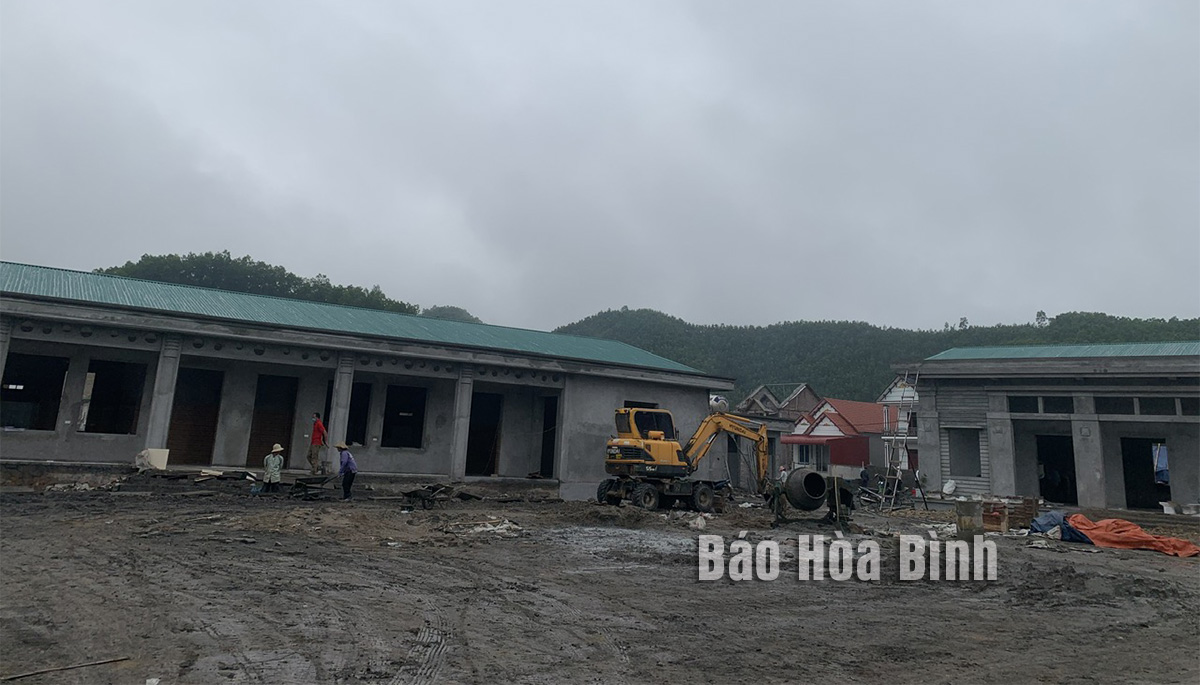
For many years, Hoa Binh province has effectively integrated ethnic policies into new-style rural building, contributing to giving facelift to, and improving the material and spiritual life of ethnic minority communities in the locality.
Roads in Tu Ly commune in Da Bac district
have been paved with concrete, helping facilitate trade and promote
socio-economic development.
Tu Ly commune in Da Bac district has experienced
rapid changes in recent years, with concrete roads, many new, spacious, and
modern houses, and various production models that rake in hundreds of millions
of dong each year.
These prove that the district has effectively
integrated programmes and projects, including the national target programmes on
new rural area building, sustainable poverty reduction and socio-economic
development in mountainous and ethnic minority-inhabited areas.
Dinh Cong Tuyen in Tinh hamlet, Tu Ly commune –
the owner of a mushroom farm that earns hundreds of millions of dong per year,
said that implementing the national target programmes, Da Bac district has
mobilsed many resources for infrastructure development; and put in place
programmes and projects in support of ethnic minority groups in production,
contributing to improving their material and spiritual life.
Da Bac is home to five ethnic groups, namely
Tay, Muong, Dao, Thai, and Kinh, with ethnic minorities accounting for 89.72%
of the local population.
According to Ban Kim Quy, Vice Chairman of the
district People's Committee, in the 2021-2025 period, the locality has implemented
the national target programme on socio-economic development in ethnic
minority-inhabited and mountainous areas with total funding of over 484 billion
VND (over 19.45 million USD).
As a result, 100% of roads to commune centres,
99% of roads to villages, 84% of village and hamlet roads, 79% of alley roads,
and 50% of main intra-field roads are concretised. The health station system is
relatively well-built, with 15 out of 17 communes meeting national health
standards.
Thanks to efforts by all-level Party Committees,
authorities, organisations and people, the socio-economic situation of ethnic
minority-inhabited areas in the province has seen improvements, and national
defense - security, and social order and safety have been maintained. The province’s agriculture sector reported that
since 2021, over 16 trillion VND has been mobilised for the national target
program on building new-style rural areas.
As of the end of June, 80 out of 129 communes in
Hoa Binh had met the new rural area criteria; 28 recognised as advanced
new-style rural communes, one model new-style rural commune, 75 model
residential areas, and 258 model gardens.
With just over a month left until the school summer break, students are eagerly anticipating a period of rest and fun after a year of academic pressure. To provide a healthy environment for the physical development, in addition to the classes that foster talents and enhance the academic knowledge, sports and physical activities continue to attract a large number of children and teenagers.
On April 17th, Hoa Binh Provincial Museum organized a program to promote and introduce the outstanding values of "Hoa Binh Culture” at the Boarding Secondary and High School for ethnic minority students in Mai Chau District.
The Hoa Binh College of Technical Technology, in collaboration with the Hoa Binh Technical and Economic College and the provincial Association of Literature and Arts, hosted a gathering on April 15 to celebrate Laos’ traditional Bunpimay (New Year) Festival 2025 and debut the new book "Nguoi Muong o ban Don” (Muong people in Don village).
In the millennia-long history of national construction and safeguarding, people of all ethnic groups in Hoa Binh have been united and closely bound together to overcome all difficulties and challenges, standing alongside the entire Vietnamese people throughout the history of building and defending the country.
Living green is a healthy, positive, and sustainable lifestyle that not only helps protect
the environment and quality of life but also conserves natural resources and ecosystems.
Among the many ways to embrace this lifestyle, reducing plastic consumption is one of the most impactful.
The women's unions at all levels in Kim Boi district have been making significant contributions to the movement of building cultural life in the local community.
The movement helps improve rural look and the spiritual and material lives of local residents.



